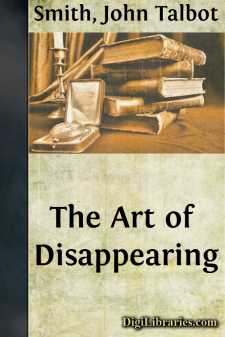Categories
- Antiques & Collectibles 13
- Architecture 36
- Art 48
- Bibles 22
- Biography & Autobiography 816
- Body, Mind & Spirit 145
- Business & Economics 28
- Children's Books 18
- Children's Fiction 14
- Computers 4
- Cooking 94
- Crafts & Hobbies 4
- Drama 346
- Education 58
- Family & Relationships 59
- Fiction 11831
- Foreign Language Study 3
- Games 19
- Gardening 17
- Health & Fitness 34
- History 1378
- House & Home 1
- Humor 147
- Juvenile Fiction 1873
- Juvenile Nonfiction 202
- Language Arts & Disciplines 89
- Law 16
- Literary Collections 686
- Literary Criticism 179
- Mathematics 13
- Medical 41
- Music 40
- Nature 179
- Non-Classifiable 1768
- Performing Arts 7
- Periodicals 1453
- Philosophy 66
- Photography 2
- Poetry 897
- Political Science 203
- Psychology 45
- Reference 154
- Religion 516
- Science 126
- Self-Help 86
- Social Science 82
- Sports & Recreation 34
- Study Aids 3
- Technology & Engineering 59
- Transportation 23
- Travel 463
- True Crime 29
Our website is made possible by displaying online advertisements to our visitors.
Please consider supporting us by disabling your ad blocker.
The Art of Disappearing
Description:
Excerpt
THE HOLY OILS.
Horace Endicott once believed that life began for him the day he married Sonia Westfield. The ten months spent with the young wife were of a hue so roseate as to render discussion of the point foolish. His youth had been a happy one, of the roystering, innocent kind: noisy with yachting, baseball, and a moderate quantity of college beer, but clean, as if his mother had supervised it; yet he had never really lived in his twenty-five years, until the blessed experience of a long honeymoon and a little housekeeping with Sonia had woven into his life the light of sun and moon and stars together. However, as he admitted long afterwards, his mistake was as terrible as convincing. Life began for him that day he sat in the railway carriage across the aisle from distinguished Monsignor O'Donnell, prelate of the Pope's household, doctor in theology, and vicar-general of the New York diocese. The train being on its way to Boston, and the journey dull, Horace whiled away a slow hour watching the Monsignor, and wondering what motives govern the activity of the priests of Rome. The priest was a handsome man of fifty, dark-haired, of an ascetic pallor, but undoubtedly practical, as his quick and business-like movements testified. His dark eyes were of fine color and expression, and his manners showed the gentleman.
"Some years ago," thought Horace, "I would have studied his person for indications of hoofs and horns—so strangely was I brought up. He is just a poor fellow like myself—it is as great a mistake to make these men demi-gods as to make them demi-devils—and he denies himself a wife as a Prohibitionist denies himself a drink. He goes through his mummeries as honestly as a parson through his sermons or a dervish through his dances—it's all one, and we must allow for it in the make-up of human nature. One man has his parson, another his priest, a third his dervish—and I have Sonia."
This satisfactory conclusion he dwelt upon lovingly, unconscious that the Monsignor was now observing him in turn.
"A fine boy," the priest thought, "with man written all over him. Honest face, virtuous expression, daring too, loving-hearted, lovable, clever, I'm sure, and his life has been too easy to develop any marked character. Too young to have been in the war, but you may be sure he wanted to go, and his mother had to exercise her authority to keep him at home. He has been enjoying me for an hour.... I'm as pleasant as a puzzle to him ... he preferred to read me rather than Dickens, and I gather from his expression that he has solved me. By this time I am rated in his mind as an impostor. Oh, the children of the Mayflower, how hard for them to see anything in life except through the portholes of that ship."
With a sigh the priest returned to his book, and the two gentlemen, having had their fill of speculation, forgot each other directly and forever. At this point the accident occurred. The slow train ran into a train ahead, which should have been farther on at that moment....


